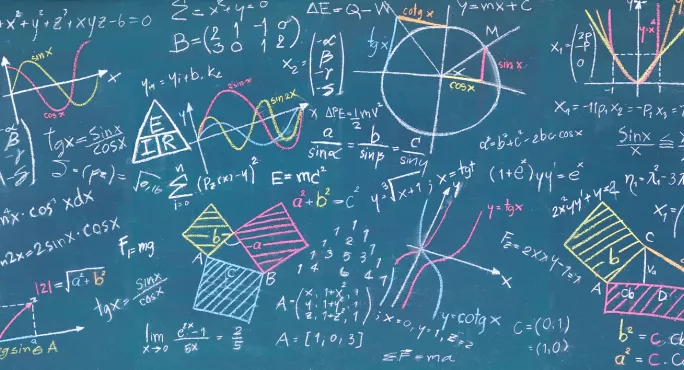- Home
- Secondary maths teaching ‘variable’ and ‘weak’
Secondary maths teaching ‘variable’ and ‘weak’

An inspection evaluating the quality of Scottish pupils’ learning experiences in maths has found that secondary students are all too often “passive” and not fully engaged in their maths lessons - and the quality of the teaching they are receiving is “too variable and at times weak”.
The numeracy and maths thematic inspection - published this week by curriculum and inspection body Education Scotland - found that overall the quality of teaching of numeracy and mathematics was “good”, but that there was “too much variability within the sectors”. It found that “a significant number of young people are not fully engaged in their learning in secondary”.
The report - which involved inspectors visiting 40 nurseries, primaries and secondaries over a six-month period at the start of this year - says secondary students were “too passive”, spending “prolonged periods” listening to their teacher or engaging in “low-level tasks” and there were missed opportunities for pupils “to explore their learning with each other or the teacher through discussion and more varied approaches”.
Background: Teachers ‘don’t need Higher maths qualification’
Related: Huge rise in practical maths uptake
Figures: 400 fewer secondary maths teachers
Test yourself: Can you do these summer maths puzzles for 10-year-olds?
The inspectors also found that “in a few schools”, children and young people who required additional support were “not well enough supported in class” and that “the majority” of Scottish secondaries - defined as 50 to 75 per cent of schools - were guilty of “narrowing” pupils experiences by “teaching to the examination requirements”.
Maths teaching ‘weak’
“This can result in young people not having the breadth or depth of learning required to ensure success in the senior phase,” says the report.
Under the Scottish curriculum, the broad general education is supposed to run from nursery to S3, with pupils working towards qualifications in the senior phase, from S4 to S6.
The report adds: “There is considerable variation in the engagement of young people in mathematical learning in secondary schools. All too often a significant number of young people are not fully engaged in their learning. They are too passive, spending prolonged periods listening to their teacher or engaging in low-level tasks. There are missed opportunities for young people to explore their learning with each other or the teacher through discussion and more varied approaches.
“In secondary school mathematics departments, the overall quality of teaching is too variable and at times weak.”
The report comes in the wake of the latest results from the Organisation for Economic Cooperation and Development’s Programme for International Student Assessment (Pisa), which found that Scottish 15-year-olds were average when it came to maths.
Scottish students achieved a mean score of 489 in maths, down from 491 in 2015 and 524 in 2003. This led to the Scottish Conservative education spokeswoman Liz Smith saying that Scotland had hit a “record low” in both maths and science.
University of Edinburgh academic Lindsay Paterson, meanwhile, warned that Scotland’s overall Pisa performance was best described as “stagnating in mediocrity”.
Register with Tes and you can read two free articles every month plus you'll have access to our range of award-winning newsletters.
Keep reading with our special offer!
You’ve reached your limit of free articles this month.
- Unlimited access to all Tes magazine content
- Save your favourite articles and gift them to your colleagues
- Exclusive subscriber-only stories
- Over 200,000 archived articles
- Unlimited access to all Tes magazine content
- Save your favourite articles and gift them to your colleagues
- Exclusive subscriber-only stories
- Over 200,000 archived articles



